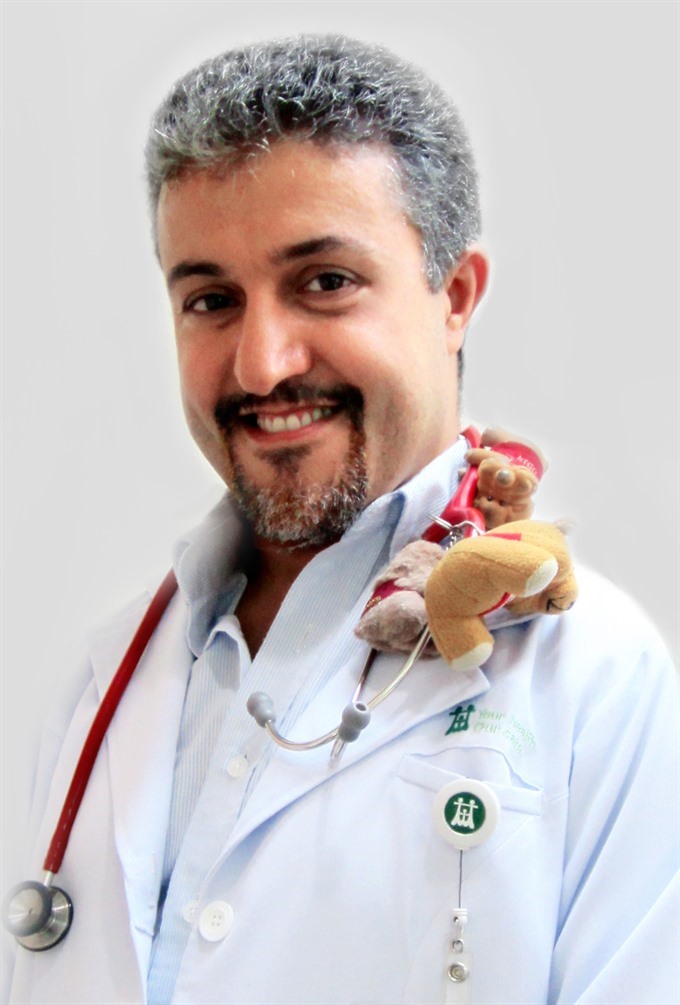 Life & Style
Life & Style

Babies in the first two years of their lives need at least 22 shots of vaccinations against 18 different types of infections.
 |
| Dr. Jonathan Halevy. — Photo courtesy of Family Medical Practice |
by Dr. Jonathan Halevy*
Babies in the first two years of their lives need to get at least 22 shots of vaccinations against 18 different types of infections (viruses and bacteria).
Now what kind of a parent would put his tiny little baby through this? What parent would give his little baby 22 painful shots, expose him to infectious material, chemicals and side effects? And how come pediatricians all over the world recommend parents to do so? Aren’t these doctors supposed to protect little babies, not harm them? How come governments and schools make vaccinations mandatory? Have they all lost their minds?
The answer is simple: we do it because the alternative of not doing it is so much worse. In 2008 over 1.5 million children under the age of 5 died around the world from diseases that could have been prevented by vaccinations. In 2014, there was a terrible outbreak of measles in Việt Nam, affecting thousands of children and causing the death of hundreds of little babies who were not vaccinated.
The history of vaccinations
A vaccination is a way to expose the immune system to a harmless component of an infectious agent (virus or bacteria) in order to create specific antibodies against the infection and thus prevent that virus or bacteria from invading the body and causing a disease.
The first recorded use of vaccinations was in China about 2,500 years ago. Chinese physicians discovered that by scratching lesions from a smallpox victim and sticking a healthy person with this material made them immune to smallpox. Obviously, it wasn’t always successful and some developed the disease.
But many others survived this lethal infection due to this “vaccine”.
This method was later adopted by Indian physicians and spread to other countries over Asia.
In the 18th century there was an outbreak of smallpox in England. Physicians noticed that women who milked cows infected by a type of cowpox never developed the disease. In 1796, Dr Edward Jenner “immunised” James Phipps, an 8 year old boy, using material from cowpox and showed he was resistant to smallpox. By 1800 there were over 100,000 people vaccinated in that manner.
Later on Dr Pasteur used Jenner’s method to develop vaccinations against cholera, anthrax and rabies.
How safe are vaccinations?
The ideal vaccination would be one without any side effects whatsoever. Unfortunately, no vaccination like this exists. Come to think of it, no medication like this exists! Even giving your child an “innocent” medication such as paracetamol (Tylenol; Efferlgan) for fever has the small potential of causing serious side effects, such as allergic reactions or liver damage. Ibrufen can cause kidney damage, liver failure, hearing loss and stomach bleeding. When we give a child medication, any kind of medication, we have to weigh the benefits against the dangers of doing so. The benefits of giving vaccinations are so high and so important. They are lifesaving! Vaccinations are very safe, have been studied extensively over many years and have been given to millions of children all over the world with a very low rate of serious side effects.
Many people have blamed vaccinations (or components of vaccinations such as mercury or aluminum hydroxide) for causing terrible diseases like autism, multiple sclerosis, diabetes and basically any horror possible. Research has shown time and time again that there is no connection between vaccinations and these conditions. In countries where vaccination rates have dropped due to these accusations, the rate of these conditions continued to be the same. But the infections have reemerged and caused devastating results.
The medical research field continues to develop newer, safer, better vaccinations all the time and hopefully one day we will have the perfect vaccines, but in the meantime, we must protect our children in the best way we can. And vaccines are the best preventive medicine we have in the war against childhood infections and death.
So what parent wouldn’t give their child vaccinations, the best protection they can? — Family Medical Practice
Jonathan Halevy, medical director of the paediatric department is a published author on paediatric care. He joined Family Medical Practice in 2005, returning in 2013 after a year at the Royal Children Hospital intensive care unit in Melbourne. He is frequently invited by the local community to deliver health talks and has addressed many schools and parent groups on paediatric health issues and other medical topics.
For more advice on any medical topics, visit Family Medical Practice Hanoi at: 298 I Kim Mã St, Ba Đình Dist. Tel: (024) 3843 0748. E: hanoi@vietnammedicalpractice.com or https://www.vietnammedicalpractice.com.
FMP’s downtown Hồ Chí Minh location is: Diamond Plaza, 34 Lê Duẩn St, District 1; 95 Thảo Điền St, Dist 2. Tel: (028) 3822 7848. E: hcmc@vietnammedicalpractice.com.
FMP Đà Nẵng is located at 96-98 Nguyễn Văn Linh St, Hải Châu Dist. Tel: (0236) 3582 699. E: danang@vietnammedicalpractice.com.




